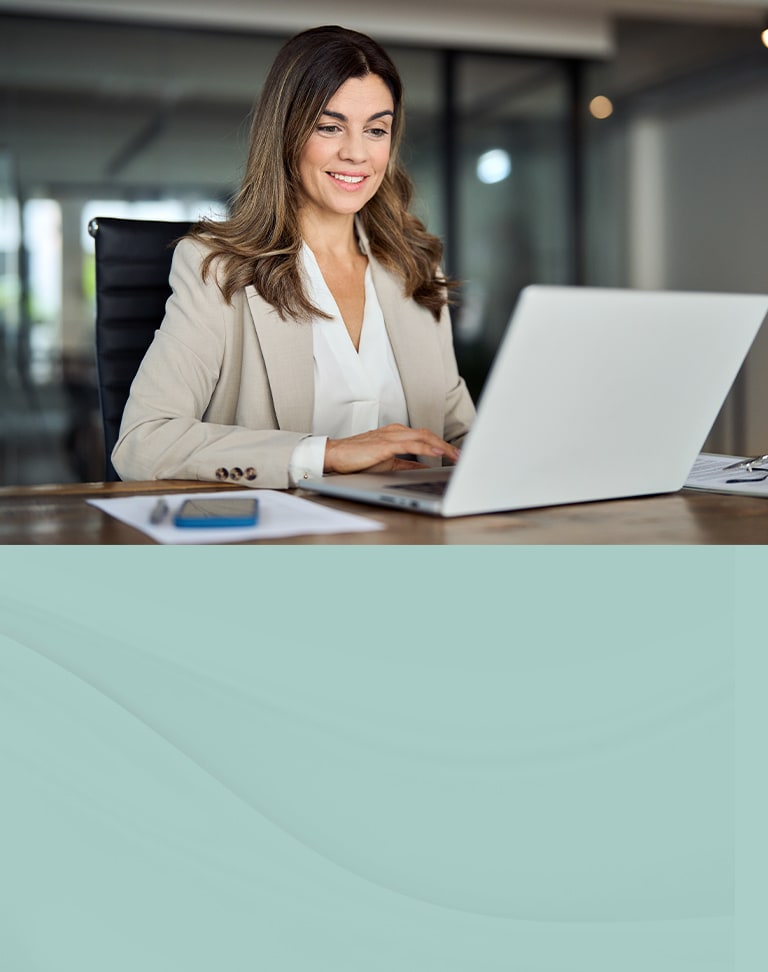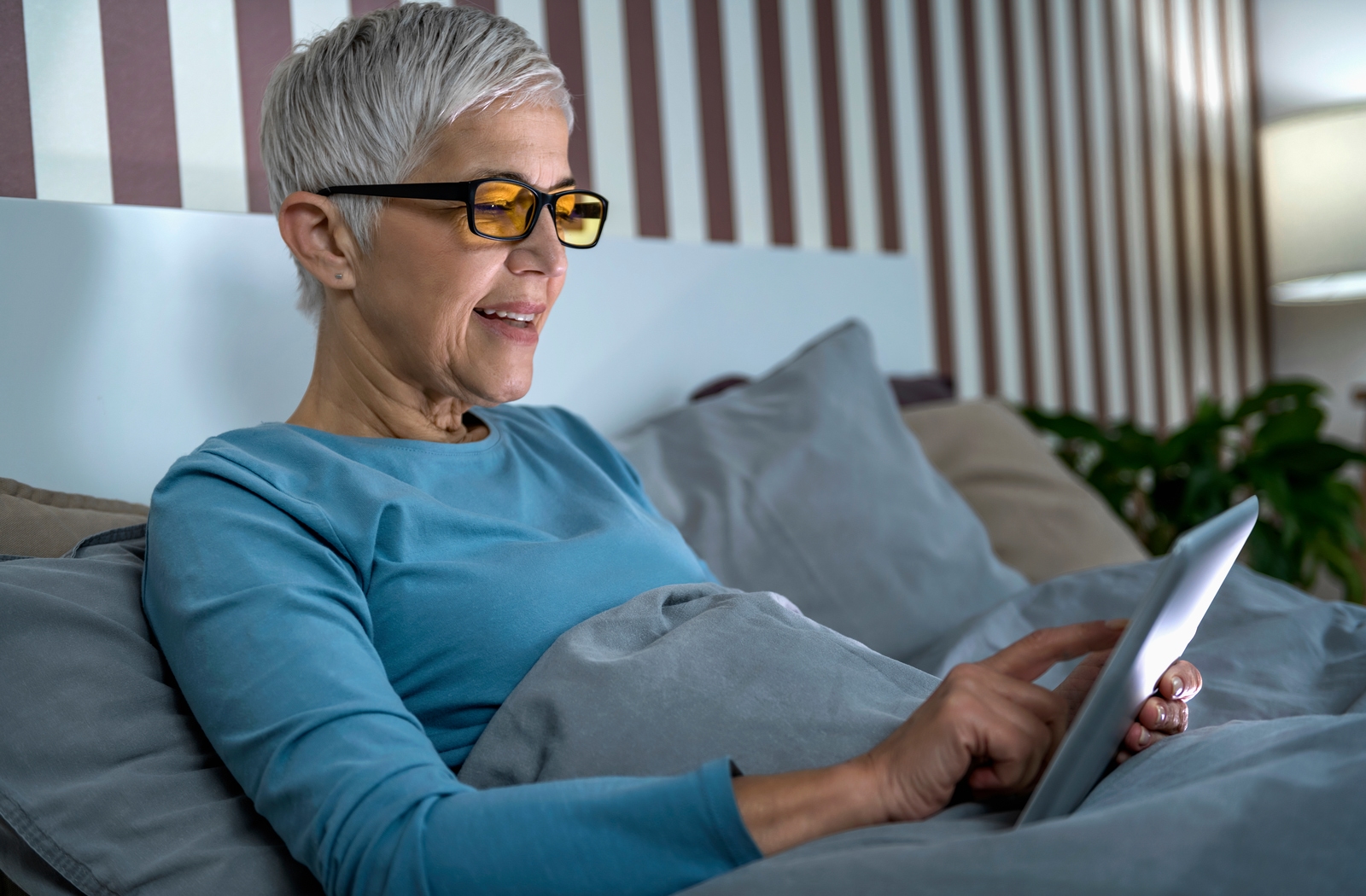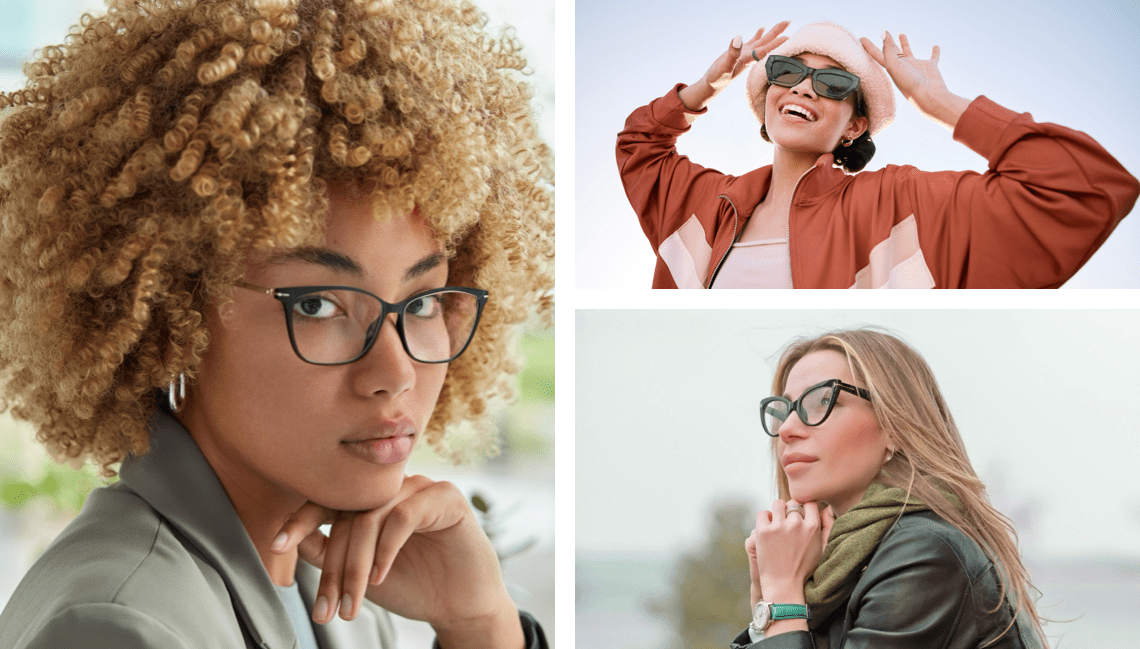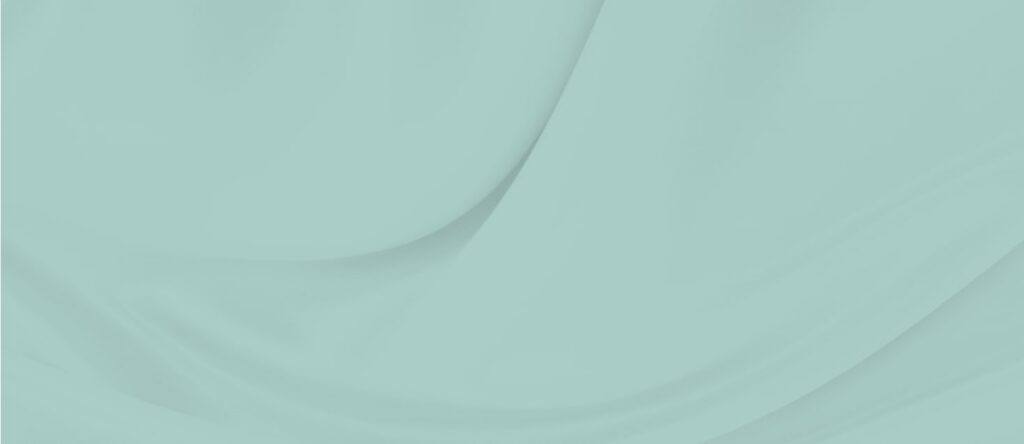Blue light glasses have come into vogue in a big way. The increase in screen time many of us have experienced during the pandemic has led to many people searching for a way to mitigate digital eye strain.
If you’ve been suffering from dry eye, headaches, or other symptoms of digital eye strain, you may be wondering if your next pair of glasses should have blue light blocking lenses. But are blue light glasses effective? Do they have the potential to harm your eyes?
Let’s break down some of what’s known about blue light, its effects on your eyes, and the usefulness of blue light blocking glasses.
What is Blue Light?
All the light we’re able to perceive is made up of rays of different wavelengths and colours. The rainbows you see when sunlight passes through a prism are a good example of this. Blue light is the part of the visible light spectrum with the shortest wavelengths and the highest energy.
Blue light has both pros and cons. On the one hand, it’s been shown to improve alertness, increase memory function, and boost mood. On the other hand, blue light may increase the risk of cataracts or age-related macular degeneration.
Where Does Blue Light Come From?
When we talk about blue light, it’s normally in the context of discussing artificial light sources, including:
- LED lights
- Fluorescent lights
- Compact fluorescent light bulbs
- Computer monitors
- Cell phone screens
- Tablets
But did you know the single largest source of blue light in our lives is the sun? It’s suggested we get 1000 times the blue light exposure from the sun than from any of our digital devices.

What are Blue Light Glasses?
Blue light glasses have exploded in popularity over recent years as a potential tool to filter blue light well using our devices. The increase in the discussion about blocking blue light has ramped up recently thanks, in part, to the increase in screen time during the covid-19 pandemic.
Blue light glasses use a filter that is often slightly yellow-tinted to block excessive blue light from entering your eyes.
Are Blue Light Glasses Harmful?
So, are these blue light glasses harmful? They don’t seem to be. Unfortunately, there isn’t much science back in their claims, either. There’s a lack of research into blue light glasses, even if blocking blue light is the right solution for digital eye strain and its associated symptoms.
Many optometrists do offer blue light filters for their glasses. These offer a slight alteration of the way we take in blue light. Think about it like the nighttime filter on your computer or phone screen. To follow advances in blue light filtering research, stick with reputable sources.
One word of caution: be wary about purchasing blue light glasses from a source other than your optometrist. Buying blue light glasses to put off a visit to the eye doctor may wind up delaying the diagnosis of an underlying eye problem.
If you’re looking for something to offer eye comfort or address vision problems, it’s always best to stick with a trusted, certified provider, like your optician or optometrist. They can get to the bottom of your symptoms.
How Should I Minimize Blue Light Exposure?
Still, there is no doubt that blue light does have an impact on our circadian rhythms. If you are seeking out blue light blocking glasses to fight digital eye strain and promote healthier sleep patterns, there are some tried-and-trusted techniques you can use:
- The 20-20-20 rule: when using a device, take a 20-second break every 20 minutes and allow your eyes to focus on something 20 feet away.
- Slow down your screen use as you wind down for bed. Though hearing that may bring back the feeling of your childhood self being told to shut off your light because it’s bedtime, letting your eyes ease into a nighttime routine without the interference of screens can improve sleep.
- If you’re concerned about symptoms of blue light and digital eye strain, talk to your optometrist. They can give you suggestions to help ease any strain on your eyes.







